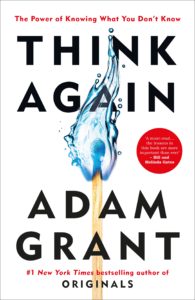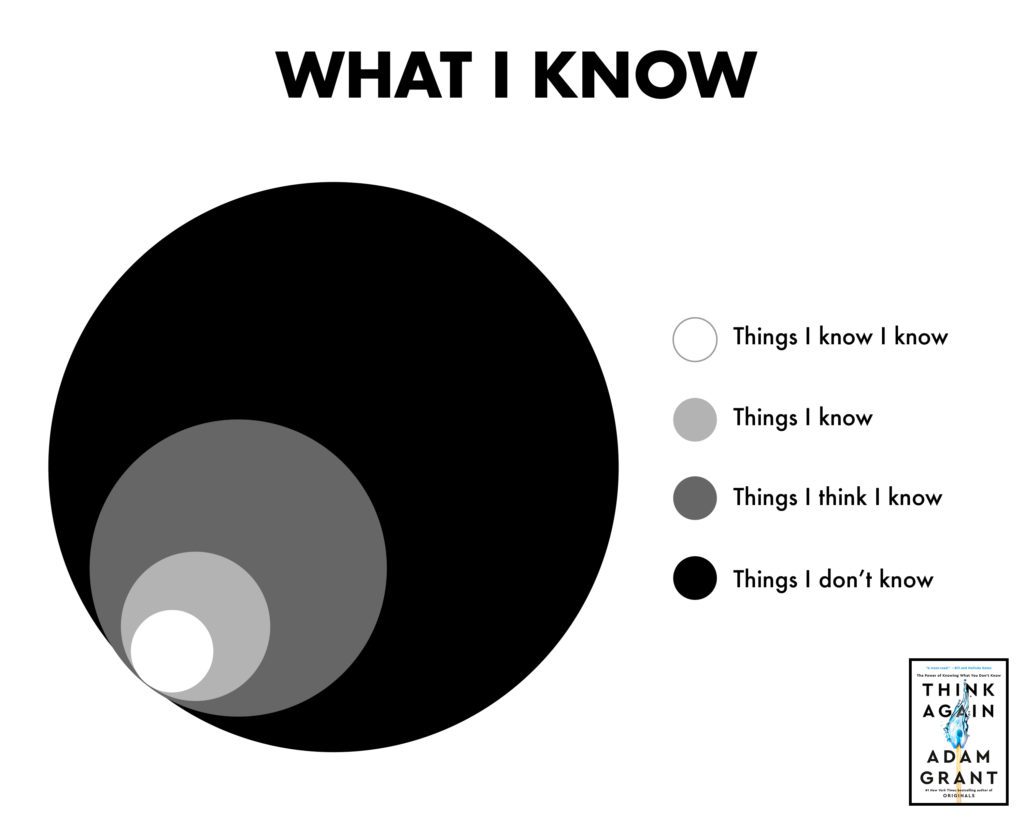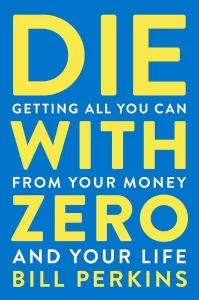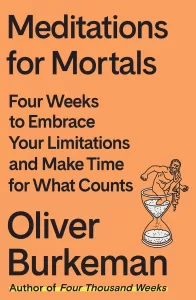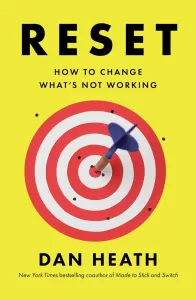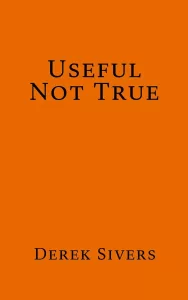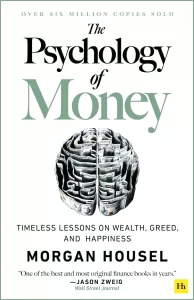Book Review: “Think Again”
Book: Think Again by Adam Grant
Reviewer: Bobby Powers
My Thoughts: 9 of 10
This is the book America needs right now. If everyone read this book, our political discourse would be in a MUCH better place. Grant encourages readers to question what they think they know. He says that rather than approaching conversations with closed minds and arguments in our quiver, we should debate ideas with intellectual curiosity and confident humility. This book is well-researched, filled with compelling stories, and objectively written to help everyone examine their own viewpoints and how tightly they hold them. I loved this book. It's the type of book that needs to be read and re-read because it flies in the face of so many things we've unconsciously learned that need to be rewired in our brains.
What I Learned from the Book
Wow, there's so much I could say here. Here are a few of my personal takeaways:
- I often try to convince people to see things my way, when I should instead spend more time truly listening to others and seeking their point of view.
- In conversations, our goal should be to open our minds to where we can honestly listen and learn from each other, not try to notch "debate points."
- Oftentimes, we're only excited to challenge ideas that don't matter much to us. When we hear ideas that conflict with our loosely-held notions, we get curious. When we hear ideas that conflict with more deeply-held convictions (religion, politics, moral issues, etc.), we get angry or flustered.
- Questioning your own beliefs is scary because it threatens your identity. But it's also necessary.
Selected Quotes and Ideas from the Book
We Don't Like to Rethink Things
- "Questioning ourselves makes the world more unpredictable. It requires us to admit that the facts may have changed, that what was once right may now be wrong. Reconsidering something we believe deeply can threaten our identities, making it feel as if we're losing a part of ourselves."
- "We favor the comfort of conviction over the discomfort of doubt, and we let our beliefs get brittle long before our bones...We listen to views that make us feel good, instead of ideas that make us think hard."
- "Our ways of thinking become habits that can weigh us down, and we don't bother to question them until it's too late."
- "Calcified ideologies are tearing American culture apart. Even our great governing document, the U.S. Constitution, allows for amendments. What if we were quicker to make amendments to our own mental constitutions?"
- "We're swift to recognize when other people need to think again. We question the judgment of experts whenever we seek out a second opinion on a medical diagnosis. Unfortunately, when it comes to our own knowledge and opinions, we often favor feeling right over being right."
- "When an idea or assumption doesn't matter deeply to us, we're often excited to question it...When a core belief is questioned, though, we tend to shut down rather than open up."
Preachers, Prosecutors, and Politicians
- "As we think and talk, we often slip into the mindsets of three different professions: preachers, prosecutors, and politicians. In each of these modes, we take on a particular identity and use a distinct set of tools.
- We go into preacher mode when our sacred beliefs are in jeopardy: we deliver sermons to protect and promote our ideals.
- We enter prosecutor mode when we recognize flaws in other people's reasoning: we marshal arguments to prove them wrong and win our case.
- We shift into politician mode when we're seeking to win over an audience: we campaign and lobby for the approval of our constituents." (Idea from Phil Tetlock)
- "The risk is that we become so wrapped up in preaching that we're right, prosecuting others who are wrong, and politicking for support that we don't bother to rethink our own views."
Armchair Quarterbacking
- "It's when we progress from novice to amateur that we become overconfident. A bit of knowledge can be a dangerous thing. In too many domains of our lives, we never gain enough expertise to question our opinions or discover what we don't know. We have just enough information to feel self-assured about making pronouncements and passing judgment."
- "According to what's now known as the Dunning-Kruger effect, it's when we lack competence that we're most likely to be brimming with overconfidence...The less intelligent we are in a particular domain, the more we seem to overestimate our actual intelligence in that domain."
- "Arrogance is ignorance plus conviction." -Tim Urban
- "Uncertainty primes us to ask questions and absorb new ideas. It protects us against the Dunning-Kruger effect."
We Must Learn to Re-Think
- "Mental horsepower doesn't guarantee mental dexterity. No matter how much brainpower you have, if you lack the motivation to change your mind, you'll miss many occasions to think again. Research reveals that the higher you score on an IQ test, the more likely you are to fall for stereotypes, because you're faster at recognizing patterns. And recent experiments suggest that the smarter you are, the more you might struggle to update your beliefs...Being good at thinking can make you worse at rethinking."
- "Progress is impossible without change; and those who cannot change their minds cannot change anything." -George Bernard Shaw
- "The problem is that we live in a rapidly changing world, where we need to spend as much time rethinking as we do thinking. Rethinking is a skill set, but it's also a mindset."
- "Accept the fact that you're going to be wrong. Try to disprove yourself. When you're wrong, it's not something to be depressed about. Say, 'Hey, I discovered something!'" -Jean-Pierre Beugoms
How to Convince Others to Re-Think
- "A good debate is not a war. It's not even a tug-of-war, where you can drag your opponent to your side if you pull hard enough on the rope. It's more like a dance that hasn't been choreographed, negotiated with a partner who has a different set of steps in mind. If you try too hard to lead, your partner will resist. If you can adapt your moves to hers, and get her to do the same, you're more likely to end up in rhythm."
- "We won't have much luck changing other people's minds if we refuse to change ours. We can demonstrate openness by acknowledging where we agree with our critics and even what we've learned from them. Then, when we ask what views they might be willing to revise, we're not hypocrites."
- "Convincing other people to think again isn't just about making a good argument--it's about establishing that we have the right motives in doing so. When we concede that someone else has made a good point, we signal that we're not preachers, prosecutors, or politicians trying to advance an agenda. We're scientists trying to get to the truth."
- "The more reasons we put on the table, the easier it is for people to discard the shakiest one. Once they reject one of our justifications, they can easily dismiss our entire case."
- "The skilled negotiators rarely wen on offense or defense. Instead, they expressed curiosity with questions like 'So you don't see any merit in this proposal at all?'"
- "[W]e can rarely motivate someone else to change. We're better off helping them find their own motivation to change."
How to Handle Charged Conversations
- We often fall prey to binary bias, which presumes that there are only two sides to any given issue. "But when the only available options are black and white, it's natural to slip into a mentality of us versus them and to focus on the sides over the science. For those on the fence, when forced to choose a side, the emotional, political, and economic pressures tilt in favor of disengaging or dismissing the problem. To overcome binary bias, a good starting point is to become aware of the range of perspectives across a given spectrum."
- "As consumers of information, we have a role to play in embracing a more nuanced point of view. When we're reading, listening, or watching, we can learn to recognize complexity as a signal of credibility."
- "It's true that complexity doesn't always make for good sound bites, but it does seed great conversations."
- "The greater the distance between us and an adversary, the more likely we are to oversimplify their actual motives and invent explanations that stray far from their reality. What works is not perspective-taking but perspective-seeking: actually talking to people to gain insight into the nuances of their views."
Think you’d like this book?
Other books you may enjoy:
Thinking in Bets by Annie Duke
The Biggest Bluff by Maria Konnikova
Thinking, Fast and Slow by Daniel Kahneman
Other notable books by the author:
Give and Take by Adam Grant
Originals by Adam Grant
Plan B by Sheryl Sandberg and Adam Grant
